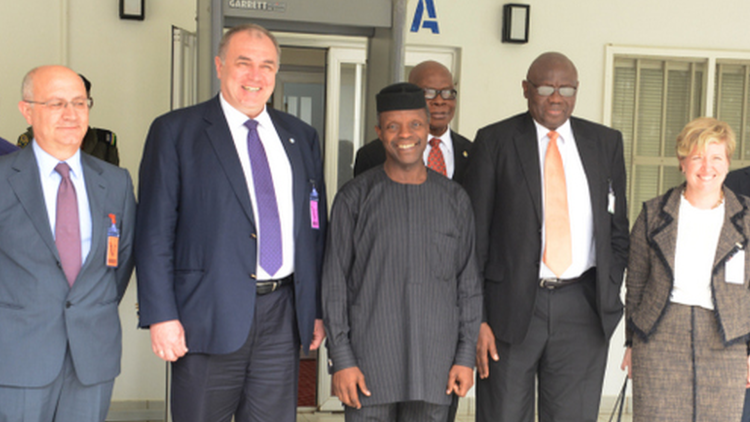An International Atomic Energy Agency (IAEA) team of experts has concluded a two-week mission to review infrastructure development for a new nuclear power programme in Nigeria. The Integrated Nuclear Infrastructure Review (INIR) was carried at the invitation of the Nigerian Government.
The INIR team, in its closing meeting on 26 June with the Government and the Nigeria Atomic Energy Commission (NAEC) and the Nigerian Nuclear Regulatory Authority (NNRA), said Nigeria is making notable progress in setting up the infrastructure needed to support the development of its nuclear power programme. The INIR team also made recommendations and suggestions aimed at helping Nigeria to further advance its infrastructure development.
Africa’s largest economy, Nigeria has decided to include nuclear power in its energy mix to meet increasing demand for electricity and support economic development. It has been developing its nuclear power infrastructure for several years, with plans to introduce nuclear power by 2025.
"NAEC and NNRA demonstrated a good understanding of the work that still needs to be done to be ready for the next stage of the programme," said mission team leader Anne Starz, Acting Head of the IAEA’s Nuclear Infrastructure Development Section.
The 10-person INIR team—comprising experts from Brazil, Germany, South Africa and Spain as well as IAEA staff—identified strengths in some areas, including:
- Substantial progress in areas where experience with other nuclear facilities in Nigeria has contributed to the planning process, such as in safeguards.
- Planned activities are underway in most areas where significant action is needed.
The mission, which began on 15 June, also highlighted areas where progress is required, including:
- Enacting a comprehensive nuclear law.
- Strengthening the capacity of the regulatory body.
- Further developing the human resources needed for project development and regulatory functions.
- Further refinement of national expectations regarding the participation of local human resources and industry in the nuclear power programme as well as policies on spent fuel and waste.
- Completion of activities needed to establish the national specifications for the plant in time for the conclusion of key agreements in areas such as siting and environmental impact assessment.
Welcoming the team’s findings, Dr Erepamo Osaisai, chairman of NEAC, said: "The recommendations and suggestions made by the INIR team will be beneficial to Nigeria as we go forward."
About INIR Missions:
Integrated Nuclear Infrastructure Review missions provide IAEA Member State representatives with an opportunity to have in-depth discussions with international experts about experiences and best practices in different countries. In developing its recommendations, the INIR team takes into account the comments made by the relevant national organizations. Implementation of any of the team's recommendations is at the discretion of the Member State requesting the mission. The results of the INIR mission are expected to help the Member State to develop an action plan to fill any gaps, which in turn will help the development of the national nuclear infrastructure.


